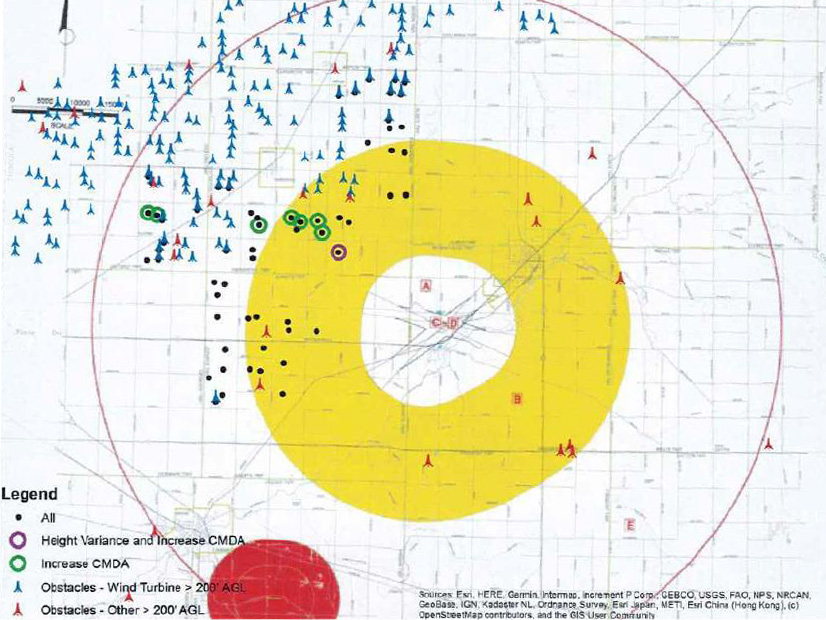Michigan Appeals Court Rules for Wind Turbines near Airport

The Tuscola County Airport, which includes a paved runway and a turf runway, is in a region of Michigan's "thumb" that is home to numerous wind turbines. | Tuscola County Airport
Mar 6, 2022
|
In a case with statewide implications, Michigan appeals court ruled local officials improperly rejected eight new wind turbines near a rural airport.

